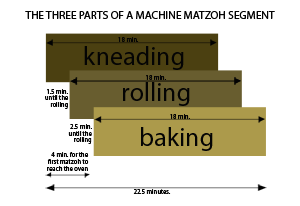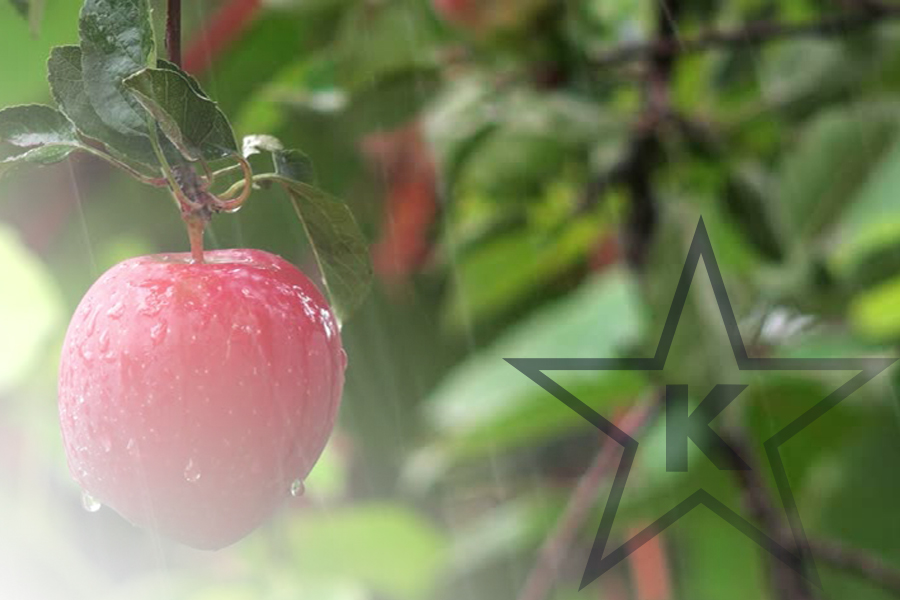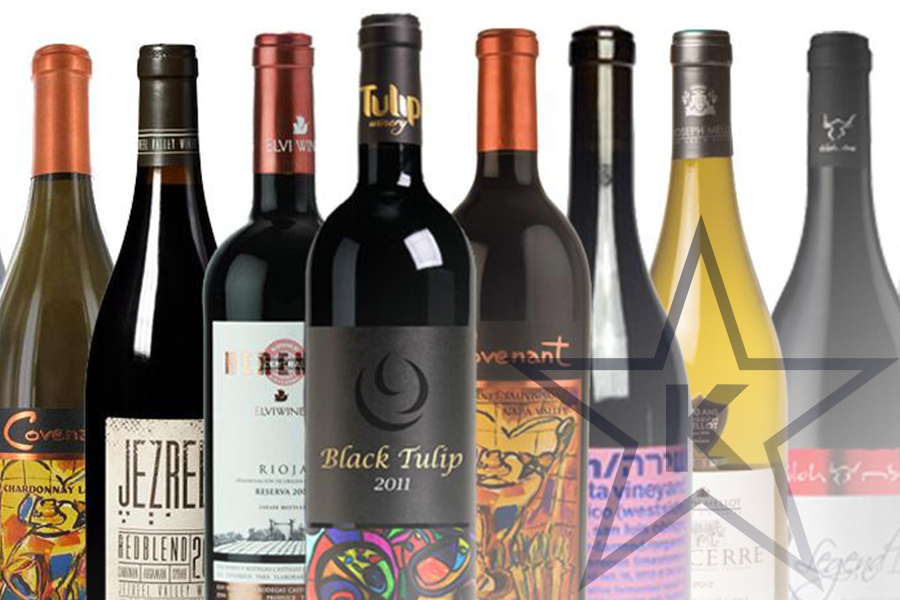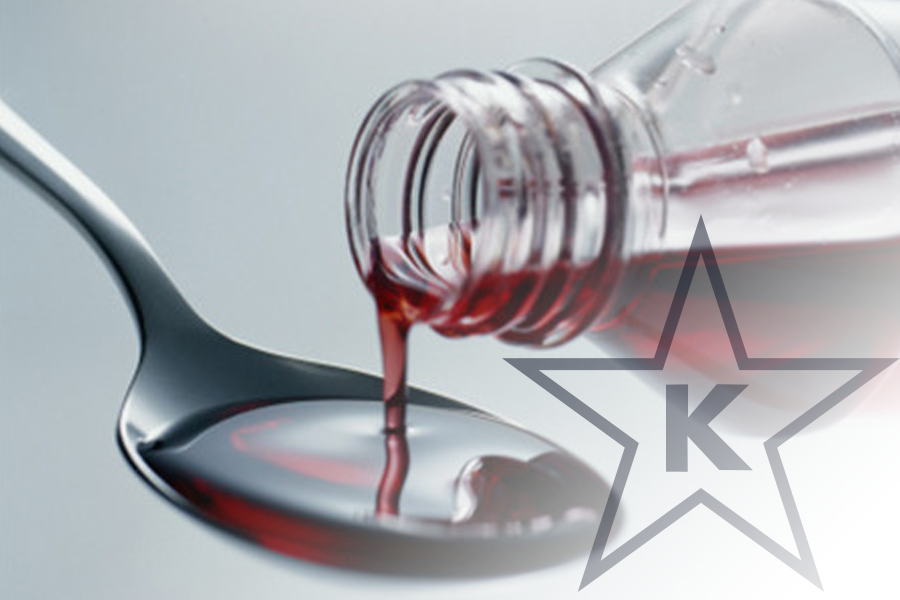
STAR-K Goes to College: An Interview with Rabbi Mayer Kurcfeld
Kashrus Kurrents, Spring 2023
Some of the top colleges in the U.S. boast a 10-25 percent Jewish
student population. In 2022, Jewish students were well-represented at all eight
Ivy League schools, with Columbia leading the way at 24%, followed by Brown
(19%), Cornell and UPenn (tied at17%), and Yale (13%).[1] The
continually increasing number of kosher and other Jewish amenities on the American
college campus mirror these statistics – and act as magnets to attract Jewish
students. For some, STAR-K’s presence on campus offers a first – and sometimes
only – taste of Yiddishkeit.
Rabbi Mayer
Kurcfeld, a STAR-K kashrus administrator, has been engineering and overseeing the
agency’s many certified on-campus facilities since 1999, custom-designing those
that were not pre-existing. I asked him to describe the kashruschallenges
of certifying the ever-evolving college campus dining platform.
KK: Which
U.S. colleges and universities are certified by STAR-K?
RMK: We currently certify kosher dining at American University, Cornell
University, Franklin & Marshall College, Ithaca College, Johns Hopkins
University, Muhlenberg College, […]
![[Webinar] STAR-K Annual Passover Products Webinar 2023](/images/news_5_t.jpg)
[Webinar] STAR-K Annual Passover Products Webinar 2023
Rabbi Zvi Goldberg and Rabbi Baruch Beyer present timely information about a variety of Pesach-related topics, including a quick review of what’s new, how to manage your food-buying budget, baby food, almond flour, kitniyos, matzah, and much much more (March 2023).
Listen here.

Rice: Nature’s Answer To Hashem’s Blessings
Kashrus Kurrents, Winter 2023
It has been touted as nature’s most versatile food. There is no single
grain that feeds more people around the globe and, because it is free of gluten
and allergens, can be tolerated by most everyone. It is the most widely
consumed staple for over half of the world’s human population.[1]
When the Gemara in Brachos discusses the brachos that
are made before and after eating this versatile grain, the mnemonic used to
remember the poskim’s conclusion is אמן: Orez, Mezonos, Nefashos. The grain we are discussing is
Oryza sativa, which the Gemara refers to as orez.[2] We
know it, simply, as rice.
There are over 7,000 varieties of rice grown worldwide. Rice is mostly consumed in the Asian regions from Japan in the east
to Pakistan in the west and, after sugarcane and maize, is the third most
produced agricultural crop in the world.[3] China
and India account for more than half […]

Shehecheyanu: A Timely Blessing
Kashrus Kurrents, Fall 2022
Shehecheyanu is part of many occasions and rituals. In the parlance of the
Gemara, it is often referred to as zman, the blessing of time. This bracha
expresses appreciation for special occasions in our lives – things that only
happen from time to time.
It is especially interesting that the minhagim of when Shehecheyanu
is said are often not in line with the strictest letter of the law. This
article will explore some of the common – and uncommon – halachos and minhagim
of this bracha relevant to the Moadim.
Times
of Holiness
Shehecheyanu is said at the onset of every Yom Tov to mark the increased
holiness of the day.[1] Although
it may be said ‘even in the marketplace’ once Yom Tov has arrived, the
implication of the Gemara in several places is that the ideal time to say Shehecheyanu
is during Kiddushand, indeed, it is included in the standard text
of Kiddush.[2]
Nevertheless, the common custom is that women […]

The Otzar Beis Din: Shemita’s Treasure Trove
Rabbi Yirmiyohu Kaganoff, Rav & Rosh Kollel in Neve Yaakov, Jerusalem | Guest Contributor
Kashrus Kurrents, Summer 2022
An Otzar Beis Din is literally ‘a storehouse operated
by Beis Din.’ Why would Beis Din operate a warehouse? Before
explaining more fully the true purpose of an Otzar Beis Din, which is a halachically
approved method of distributing Shemita produce, we must first review
the halachos of Shemita. These rules fall under two general
categories:
(1) Laws of the Land
The Torah teaches that every seventh year is Shemita,
and we are prohibited from working the land of Eretz Yisroel. One may not plow,
plant, prune, or harvest one’s grapevines as an owner, or perform most other
agricultural work. Furthermore, one may not allow one’s land to be worked
during Shemita, even by an aino Yehudi.[1] One
may perform activities whose purpose is to prevent loss, such as watering
plants and trees so that they do not die.[2]
The landowner may not treat […]

The 10 Commandments for the Prudent Passover Consumer
I. Thou Shalt Read Product Labels Carefully
– Make sure a reliable Kosher for Passover certification appears on the package. Don’t assume the product is kosher for Passover just because it is in the Passover section of the supermarket.

Understanding Kitniyos: What They Are, What They Aren’t
Reviewed March 2024
View / Download PDF of Article Here
View / Download STAR-K Kitniyos Chart Here
As is commonly known, the Torah prohibits chometz on Pesach, and the consequence of chometz consumption on Pesach is very severe. In order to distance us from the possibility of violating Torah precepts, Chazal with their supreme insight, instituted a minhag as a protective fence. The minhag to guard us from chometz violations is to refrain from consuming kitniyos on Pesach.
What are Kitniyos?
Kitniyos are popularly defined as legumes. But what are legumes? The Shulchan Aruch, Orach Chaim 453, defines kitniyos as those products that can be cooked and baked in a fashion similar to chometz grains, yet are not halachically considered in the same category as chometz. Some examples are rice, corn, peas, mustard seed, and all varieties of beans (i.e., kidney, lima, garbanzo, etc.). The […]

Kosher for Passover Foods According to Sephardi Minhagim
Rice and all different types of legumes are permissible to eat on Pesach according to the custom of most Sephardim, as long as they are careful to check rice three times to ensure there is no wheat or barley mixed in.1
Care needs to be taken that no dust of flour came into contact with the rice (or any kosher food for Pesach). Therefore, one may use only natural, unenriched rice for Pesach, ideally a rice with a reliable Kosher l’Pesach L’ochlei Kitniyot hechsher.2
Those who refrain from eating legumes on Pesach are permitted to keep them at home; there is no need to sell legumes to a non-Jew.3
It is the Sephardic custom to use egg matzah (מצה עשירה) during Pesach. This type of matzah cannot be used to fulfill the obligation of eating matzah on the first two nights of Pesach. The bracha recited […]

Quinoa, the Grain That’s Not: Then Why the Need for Passover Certification
February 2024
Tired of potatoes, potatoes and more potatoes on Pesach? Maybe give quinoa a try.
Quinoa is one of the most nutritious foods on the planet – cooked like rice, is gluten-free and loaded with vitamins and minerals. Even NASA has considered quinoa for its long-duration planetary space flights. Quinoa has become increasingly popular in the United States, Canada, Europe, China and Japan, where the crop is not typically grown.
What is Quinoa?
Quinoa (pronounced kin-wa) is a species of seeds of the Chenopodium (or “goosefoot”) family, which includes sugar beets and beet root, and is botanically related to spinach. It was first brought to the United States from South America in the 1980s. Seeds range in color from pink and orange to blue-black, purple, and red. However, once their natural saponin coating is washed off, the seeds are pale yellow.
Quinoa has been cultivated in the Andes Mountains for thousands of years, growing […]

Feeding Your Pet: Barking Up the Right Tree
Reviewed February 2024
Click HERE for the Pesach 2024 Pet Food List.
To some people, the concept that there are restrictions regarding what can be fed to animals may seem amusing. They wonder, “Really now, must dogs also eat kosher?” Of course, animals don’t need to eat kosher food. However, Halacha clearly instructs people regarding what, how and when to feed them.
The Talmud Yerushalmi1 states that before acquiring an animal, one must be sure he will be able to properly provide for it. Certainly, the owner must also know the applicable halachos. The following is a discussion of some of these halachos, including the subjects of meat and milk mixtures, Pesach, buying and selling non-kosher pet food, feeding animals on Shabbos and Yom Tov, and feeding animals before you eat.
STAR-K is not necessarily recommending ownership of pets; rather, we are providing information for those owners who require it. We […]

The History of Passover Medicine Lists in Pre-War Germany
In the 1920s, the Jewish community in Germany numbered close to half a million people. They were made up mostly of professionals in finance and retail trade. German Jewry thrived within the general culture of the Weimar Republic. As an influx of approximately 70,000 East European Jews flocked to Germany to escape political oppression and violent anti-Semitism, Berlin soon became the center for Hebrew culture, reaching its peak between 1920 to 1924. It had become a safe haven for Hebrew and Yiddish speaking intellectuals, mostly Russian Hebrew writers. Although some Jews emigrated during this time, mostly to America or Palestine, many more did so after the rise of Nazism in 1933. Unfortunately, the majority of Jews remained in Germany, with catastrophic results.
During this inter-war period, many German Jews assimilated, thereby distinguishing themselves from their observant Eastern European brethren. However, there remained a strong element of […]

Bedikas Chometz Guidelines
View / Download PDF of Article Here
Reviewed February 2024
Before Pesach, a person is obligated to perform bedikas chometz, a search of his house and possessions, to ensure that he does not own any chometz. The bedika should be conducted at the beginning of the night of the 14th of Nissan, immediately after tzeis hakochavim.1 If he did not do so, the bedika can be done all night. Bedi’eved, if he did not perform the bedika that night he should do it on the day of the 14th of Nissan.2
If he will not be home on the night of the 14th of Nissan, he should appoint another adult to perform the bedika on his behalf.3 If he leaves his house within thirty days of Pesach, and is not planning to return and conduct a bedika […]

How to Check Matzos
Updated February 2024
A handy, printer-friendly version of this article, with useful photographs of kefula matzos, can be found here.
The production of Kosher l’Pesach (KFP) matzos involves a great deal of meticulous work. The process begins with the inspection of wheat kernels to ensure that they have not been adversely affected by moisture in the air or prematurely sprouted. Grinding of the grain must be performed according to the dictates of Halacha, which precludes any pre-grind soaking of the grain and requires special preparation of the milling equipment to ensure that no contamination exists from non-Passover flour in the grinders and filters. The KFP flour is then loaded onto trucks, either pneumatically or in bags under controlled conditions, and shipped to the bakeries.
A bakery which has been kashered for Pesach will have already prepared special water (mayim shelanu) to be used for Pesach matzos. Hand matzah bakeries do not use […]

Machine Matzos: Timing is Everything!
Reviewed March 2024
Meticulous, scrupulous and passionate are terms that describe the fervor, zeal and seriousness displayed by the kosher consumer regarding Pesach kashrus in general, and Pesach matzos in particular. The kosher consumer has become more sophisticated and savvy with each passing year. Kosher consumers are willing to pay top dollar for a quality kosher product. Pesach matzohs are no exception. Machine matzos with fine mehadrin hechsherim are readily available on the supermarket shelf. Are all machine matzos created equal?
Regarding matzah baking and the time parameters for chimutz, leavening, the Shulchan Aruch1states, “One should not leave the dough dormant, not for a moment.” If the dough is constantly being worked the chimutz process is impeded.However, the Shulchan Aruch continues, “If the dough is left dormant for a ‘mil’, the dough […]

Using an Oven on Shabbos and Yom Tov
Reviewed March 2024
Cooking in the modern kitchen is a whole new experience. Technological advances have taken the old stovetop and oven and upgraded them to be safer, more efficient, and “smart” for today’s lifestyle. They are also far more complicated. With these transformations, the observant Jew is faced with challenges that did not confront him in the past.
To understand how these changes affect the halachic use of ovens and cooktops on Shabbos and Yom Tov, it is worthwhile to review some laws and concepts as they relate to cooking on Shabbos and Yom Tov.
A. Terms and Prohibitions Pertaining to Food Preparation on Shabbos and Yom Tov
Definitions of Basic Terms
Melacha A melacha is a Torah prohibited act derived from the constructive acts performed in erecting the Mishkan . These forbidden acts are known as melachos. Bishul Bishul refers to the […]

Kosher Consumer Misconsumptions
Fall 2021
STAR-K’s
consumer Kosher Hotline is constantly abuzz with kashrus inquiries. Close to
5000 consumer calls were logged between Purim and Pesach 5781 alone. Questions
range from product information to complex kitchen shailos, from reliable
kosher airline caterers to wines whose kosher certification symbols are so
small you need a high-powered magnifying glass to read the rav hamachshir’s
name.
Even
with all the available information, consumers still get confused or make incorrect
assumptions that could lead to severe halachic consequences. The following
examples of kosher consumer misconceptions are based on real Kosher Hotline
inquiries. Hopefully, this article will help clarify some common errors.
Misconception 1: Putting an oven into Sabbath Mode allows
one to cook on Shabbos.
Chas v’shalom! The Sabbath Mode does not allow one to cook on Shabbos. The
Sabbath Mode makes a modern oven halachically compliant so that it may be used on
Shabbos and Yom Tov. The purpose of the Sabbath Mode was to address new
technological and computerized features that have created […]

A Shemita Primer for Chutz La’aretz
Updated September 11, 2023
By: STAR-K Rabbinic Staff
Beginning on Rosh Hashana this year (5782) and ending Rosh Hashana next year (5783), it is the Shemita/Sabbatical year in Eretz Yisroel. This is certainly one of the most special mitzvos that we have. The amazing demonstration of our absolute faith and emunah in Hashem which is displayed from its proper observance is unique from all other mitzvos. Furthermore, the guarantee that Hashem will provide us with sustenance in advance that comes along with observing Shemita is something that proves that the Torah can be directly only from Hashem himself.
Although Shemita does not apply to land outside of Eretz Yisroel, there are still a number of circumstances that we in chutz la’aretz will likely encounter, and thereby give us the ability to observe the mitzvah of Shemita properly. The laws of Shemita are quite extensive and complex. The goal of this […]

Delivery and Ride Apps – Halachically App-roved?
Updated November 2023
With the advent of the latest apps, a whole new world of halachic scenarios has arisen.[1] These include shailos about using food delivery services, working for a food delivery or ride app, and even calling and using a ride service. These various situations will be addressed here.[2]
Ordering from Meal Delivery Apps
Meal delivery apps like Uber Eats,
Grubhub, DoorDash and Postmates have seen tremendous growth over the last few
years. For our discussion, we will use Uber Eats as our example, but the concerns
raised apply to the comparable apps.
A customer orders from a restaurant that
has contracted with Uber Eats. When it is ready, an Uber Eats driver picks it
up from the restaurant and delivers it to the customer. Here are some points to
consider when ordering from a kosher restaurant:
Is the food properly sealed?
Delivered food must be properly sealed.[3] Many restaurants do not seal take-out food, unless the […]

The Kosher Conversation Episode 5: Cholov Yisroel
Cholov Yisroel with Rabbi Tzvi Rosen
The Kosher Conversation returns from a Pesach hiatus.
In this episode we discuss how to make Cholov Yisroel milk in modern dairies, with special attention paid to Pride of the Farm.Curious about how to watch the milking of thousands of cows? Want to know who’s at the dairy on Shabbos and Yom Tov? Is Pride of the Farm really better than other milk? Wondering what could possibly go wrong?
All this and more on this week’s episode. Just press play.
As always comments, questions, and suggestions are welcome at [email protected]./html

On The Tip of Your Tongue
Spring 2021
“If there is any doubt, ask!” is a mantra that behooves any pulpit rabbi to convey to his kehila regarding kitchen mix-up issues. This is especially true concerning those shailos that involve the erroneous use of uncertified products whose only kashrus concern is that it contains mysterious “natural and artificial flavors”. However, all too often the food is thrown into the garbage before a shaila is asked. Surprising to most, when consumers in this predicament call into the STAR-K hotline, more often than not we can be the bearer of good news.
Before I delve into why, let me share a watershed story that will carry us to the essence of the matter
Where Is The Beef?
In April, 2001, a high profile article entitled, “Where’s the Beef? It Is In Your Fries!” appeared in India West, a popular newspaper and internet site for the North American […]

A Matter of Public Interest
“Oh, you need a loan to buy a new car? Check out Penn-Atlantic Credit Union. They’re practically giving money away!”
With interest rates of less than half of what is typically offered by a conventional bank, credit unions are a practical and popular choice for many consumers. Credit unions can give these low rates because they are non-profit and cooperatively owned. In order to borrow from a credit union, you must first be a member; every member is a partial owner, with both a financial stake and a vote in how it is run. This arrangement, however, presents a serious halachic concern: ribbis, the Torah prohibition against borrowing and lending of money with interest.
In truth, there is a similar ribbis concern in many bank loans. Mutual savings banks are structured similarly to credit unions; each depositor is a partial owner. The bank essentially acts as a shadchan between the many owners […]

A Glimpse into the System: Kosher Certification of Industrial Food
Since antediluvian times, when Tuval Kayin began fashioning metal implements (Breishis 4:22), developments in how items were manufactured progressed gradually with only incremental changes. About two-and-a-half centuries ago, with the advent of the Industrial Revolution, that trajectory was rapidly accelerated.1 Since then, continual technological advances have dramatically transformed manufacturing, to the point that modern methods barely resemble antiquated techniques. Food production is no exception.
Unless one was wealthy enough to enjoy spices transported over the Silk Road, pre-industrial food was locally sourced and made with familiar utensils. In stark contrast, much of what we eat today, whether the food itself or its sub-components (which are not necessarily disclosed on ingredient panels), is processed in distant factories on specialized equipment concealed from public view. Technicians wearing lab coats in laboratories serve as part of the contemporary food supply chain alongside the more traditional growers and pickers in the fields. Industrial methods are […]

Now You See It, Now You Don’t: A Kosher View of Refined Edible Oils
“שמן תורק שמך“ (Shir Hashirim Rabah 1:3) …”Your name is flowing like fine oil”. Shir Hashirim Rabah makes the following insightful observation. Shlomo Hamelech compares Bnei Yisroel to fine oil. Just as fine oil is extracted from its source through crushing and squeezing, so do the innate qualities of Bnei Yisroel emerge as a result of our collective challenges and travails. Similarly, just as oil serves as a glowing source of radiance that fills a room with shining light, so does Bnei Yisroel serve as a light to other nations through their stellar performance of Torah and mitzvos.
Oil is an incredibly remarkable and versatile product of Hashem’s creations and is not limited to olives, the quintessential source of shemen. Oil is found in a plethora of sources, and the means of oil extraction are varied. Moreover, there are remarkable halachic ramifications with various oil extractions. Let’s explore the wondrous world of […]

Kashering Your Countertops Properly
Countertops that are made of solid stone, like granite or marble are able to be Kashered for Pesach. Other synthetic or composite materials (including granite composite) can not be Kashered and should be covered.[1]
Granite or marble countertops can only be koshered using Eruy Roschin, which means pouring boiling water from a pot that has been heated on a fire.[2] Actual water[3] is needed to kasher, not steam.[4] The concept of using a steam machine is that it will boil water and spray that water through a hose creating a neat and efficient method to accomplish Eruy Roschin. However, if the steamer only produces steam and not actual boiling water, it can not be used to kasher, even if the steam is hotter than 212 F.[5] STAR-K has tested many models of steamers available commercially and have found that almost all of them will only produce hot […]

Notes from the STAR-K Bais Medrash Govoha Halacha Chaburah
The following article is based on an actual in depth and detailed ‘limud‘ that the STAR-K Kollel Chabura conducted during the past zman.
Scenario #1: It’s the afternoon of the second day of Pesach; your house is a hurricane – dishes are piled up to the ceiling, stains are all over the tablecloths, the floors are sticky and you need some serious help. You have a live-in maid. The trouble is, you’re very uncertain as to what you can ask her to do and what is and isn’t halachically permissible. Can she be asked to run the dishwasher, wash the floor or take out the garbage?
Scenario #2: It’s the afternoon of the second day of Pesach; your house is a hurricane – dishes are piled up to the ceiling, stains are all over the tablecloths, the floors are sticky and you need some […]

K’Tapuach B’Atzei HaYa’ar Like an Apple in the Orchard
The Talmud1 records a very interesting exchange between two Amoraim, Rava and Rav Pappa. Rava raised a legal query which Rav Pappa heartily answered. To that response, Rava exclaimed, “Sadnai!” Rashi gives two explanations to the approbation, Sadnai. One explanation is that Rava’s exclamation attests to Rav Pappa’s keen scholarship. When Rava extolled Rav Pappa’s scholarship, he implied that his insight was so great that Rav Pappa was able to uncover the underlying “secrets” (“sode”) of Torah. Another explanation of the term “sadnai” is a testimonial to Rav Pappa’s expertise as an expert brewer. He knew the mystery of creating a successful brew of beer.
Which variety of beer was Rav Pappa brewing? The Gemara in Pesachim,2 where this exchange between Rava and Rav Pappa was also recorded, tells us that he was brewing date beer. Brewing beer was popular in Talmudic and pre-Talmudic times. As far back as […]

A 25 Year Retrospective on Kashrus Kurrents
Approximately twenty-five years ago shortly before “Pesach” 5738 Mr. A. J. Levin, a vice president of the Orthodox Jewish Council, began publishing Kashrus Kurrents. In that first issue, printed on the familiar yellow paper with the blue Kashrus Kurrents logo, it was deemed necessary to advise the Baltimore community that they cannot rely on labels or advertisements that merely states ‘Kosher for Passover’. From that same issue we learned that the fledgling Star-K organization had just inaugurated its kosher hot-line whereby one could get accurate kashrus information Monday through Thursday between the hours of 10 a.m. to 12 p.m.
A most welcome and popular feature was a list of items that did not require special Passover certification. Included were specific brands of sugar and cocoa as well as a number of commonly used over the counter medications. Compiling the list required substantial research by volunteers […]

Star-K’s New Kashrus Training Program A Huge Success
August 2004
How can you learn to deal with the challenges of supervising a first-class hotel’s kosher kitchen which is next to its non-kosher kitchen? Where does one find the opportunity to tour a flavor plant to better understand the kosher manufacturing process? Who will train you to find the less obvious thrips and aphids when checking a restaurant’s vegetables? What will give you the preparation to administer – or perhaps, pioneer – a communal kosher certification agency?
Star-K Kosher Certification recently provided the platform for these unique learning opportunities and more. In its new complimentary certificate program, Star-K’s Kashrus Training Program allowed Kollel yungerleit of Yeshivas Ner Yisrael to experience the field of kosher supervision first hand. Held July 12-16, at Star-K’s offices in Baltimore, Maryland, the five day intensive seminar was limited to 25 students who have studied Yorah Deah.
Ner Yisrael Kollel fellow Moshe Schuchman’s sentiments […]

Kosher Wine Comes of Age
Throughout the ages, alcohol has always played a vital role in historical and religious observance. Dovid Hamelech’s declaration ויין ישמח לבב אנוש,1 “Wine will gladden the hearts of humanity,” certainly has borne itself out in modern history. Wine accompanies happy occasions in almost every society known to man. Chazal declare אין שמחה אלא ביין.2
When I was growing up, there weren’t many choices when it came to kosher wine. When my parents bought our childhood home, my father was thrilled to find that it came with a wine cellar. He was then faced with the formidable challenge of finding kosher wine good enough to bother storing. I remember a time when there were only two wines from Eretz Yisroel available, both from Carmel Chateau Rishon: Vin Rouge and Vin Blanc; basically, the whole range was sweet red and white! Domestic wines were even more limited; while there were a few […]

Just a Spoonful of Glycerin Makes the Medicine Go Down
In the world of food ingredients, there is no ingredient as versatile as glycerin. In the world of kosher ingredient sensitivity, there is no kosher-sensitive ingredient that compares to glycerin. Glycerin’s ingredient versatility is not limited to food grade applications. Glycerin is used extensively as a major component in the pharmaceutical and cosmetics industries, as well.
Glycerin is known as a humectant. That means that glycerin helps retain moisture. Therefore, glycerin is a perfect ingredient for the baking industry to keep bakery goods moist and give products a longer shelf-life. Glycerin is sweet and can be used as a substitute for liquid sugar. Glycerin is an excellent solvent and is used as a mainstay for food colors. These properties make glycerin an essential ingredient in a myriad of food applications.
Furthermore, glycerin’s natural properties make it an essential element in pharmaceutical products, as well as health and beauty aids. What is that […]

 STAR-D
STAR-D STAR-S
STAR-S